Every spring for eleven years, my husband and I have accompanied one of our children to the baseball field as they embarked on the ultimate pastime of suburban childhood — a season of little league.
Our eldest, now in high school, has given up baseball for football and basketball. Our daughter is on the cusp of 13, rendering this her last year of eligibility for the “major league” of little league. And I am embarking on the most dangerous pastime of parenthood — nostalgia.
But this nostalgia is not just about looking through years of pictures — adorable children, posing with bats raised and grins from ear to ear before they sully their pristine white baseball pants with an unnecessary slide through the dirt. It is also about reflecting on the lessons that we have learned as a whole family through these years on the baseball diamond.
Lesson 1: Baseball is (also) for girls.
Since she was four years old, my daughter has played baseball. Every year, we wondered if this would be the last year before she would feel obligated to switch to softball. But as she closes out her little league career with her peers, I am ecstatic that she stuck it out until the end.
Baseball is the ultimate gender equalizer. In basketball, the boys could choose not to pass her the ball. But when she steps up to the plate, the pitcher must pitch to her. The outfielders might take a few steps in making assumptions about her ability to hit a long ball. That would be a mistake they made only once as she blasted a ball over their heads. In the field, her job is to do her job — whether it be fielding the ball, backing up another throw, or whatever other instruction the coach gave her. Gender was not a factor — her ability to play was.
But I know my daughter has not played for a desire to promote women in sports or gender equity or anything else. She has played all these years for one reason — her coach. Baseball is my husband’s sport. Every year since tee-ball, he has agreed to be her head coach. If she had left baseball for softball or lacrosse or any other sport, her dad would have been her biggest fan on the sideline. But he would not have been her coach. Over the years, she has had an extra incentive to make it to third for a moment with her favorite coach before heading home.
Lesson 2: Everyone can be a coach.
In what might be the understatement of this lifetime, I am not an athlete. I am a sports fan. Once in rec league co-ed softball, the umpire let me have five extra pitches because I had not made contact with the ball all season. I whiffed five extra times.
So I would never give a child advice on their swing or their pitching or the positioning in the field. But in the early years, I became the bench coach. My job was mainly to make sure the kids did not swing their bats until they were on deck so they wouldn’t hit each other — either inadvertently or on purpose. Eventually, I began to enforce the batting order and make sure the kids went out to the plate in the correct order. Now that the kids are 12, my job has shifted again. I typically stand at the doorway between the dugout and the field, ensuring no overenthusiastic player runs to the plate before the current play ends. Sometimes I can be found sitting next to a child on the bench, consoling them about a play that didn’t go their way. Often I wander between the dad who is keeping score, and the dad who is keeping pitch count, making sure all the numbers line up.
I know what it’s like to be in charge and I know that, at the diamond, I am not in charge. I do not know baseball. I am not the coach. But I have learned that I can be a contributing member of the team, which is immensely gratifying. A baseball team needs many people to help it run. Whether it is the dad keeping score on the scoring app (scary technology replacing the old school pencil and paper scorebook), the mom running the big scoreboard in right field where half the lightbulbs are out, the dad counting pitches so no child goes over their pitch limit, the doctor parent that we send the kids to after a hard slide to make sure nothing is broken — we are all part of a safe, successful season.
Lesson 3: Being a great coach is hard work.
Watching my husband coach baseball made me fall even more in love with him. It constantly reminds me of all the attributes I admire and appreciate about him. He is a hard worker, he is passionate about baseball, he is strict but empathic, he is a teacher, he is a cheerleader.
My husband starts every season off with an e-mail to the parents. His goal for the season is always explicit. He would like their child to want to play baseball again next year. There have been championships — which have been fun — but they are not the goal. The goal is for the children to learn to love baseball. While he has not had a 100% success rate, it has been pretty close.
In the early years, I used to find him up late at night watching youtube videos of different baseball drills. How do I teach the kids to field a grounder? How do I teach them to run the bases? How do I teach them about the secondary lead-off? Every practice had a plan; every game had a goal. It was always about learning to do one thing better today. No one had to be Babe Ruth or Mickey Mantle or Al Kaline. But everyone should try to be better than the baseball player they were last week. His job was to teach, their job was to learn, and by the end of the season, we saw kids transform. Each fly ball caught, each out made, and each ball in play helped make them a little more confident and see themselves as baseball players.
While I can talk about some of the great players he has coached over the years, what will stick with me is the quiet talks he had with kids who were not as athletically gifted. He would cheer them on for each small victory, pumping up how they contributed to the team, making sure everyone knew that the team won or lost together. There is no better moment in little league baseball than watching your least talented batter get their first hit of the season and hear all their teammates cheering for them like they just hit a grand slam in the World Series. In those moments, the kids learn that life is not just about the score at the end of the game, but all of the small victories.
Lesson 4: Baseball — as life — is the memories that you make along the way.
In Field of Dreams, Terrance Mann — played Michigan’s own James Earl Jones, who also narrates Casey at Bat — says:
“The one constant through all the years, Ray, has been baseball. America has rolled by like an army of steamrollers. It has been erased like a blackboard, rebuilt and erased again. But baseball has marked the time. This field, this game: it’s a part of our past, Ray. It reminds us of all that once was good and it could be again.”
For our family, the one constant during Covid was — in fact — baseball. Little league was delayed in 2020, but the season got underway eventually and ended for us with a 15-10 victory in the Association League championship and my daughter and husband proudly hoisting a trophy. That season was not about the championship. Every game, a dad would bring a cooler of beer and, long after the fields were overtaken by darkness, the parents would be sitting around chatting over a Solid Gold while the kids played more baseball, or tag, or just laid in the grass — and for a few hours twice a week, we were all able to feel that life was normal.
So as we get ready to say goodbye to baseball, I will miss watching my children play. But I will also miss watching all these kids grow up. I will miss the moments when you are now playing against a kid that you coached last year, and even though you are rooting for your team, you are also (secretly and quietly) rooting for their former teammate to do well. I will miss wandering from field to field during lulls in play to say hi and check in with the other parents. I will miss watching the little sisters that gravitate to our game to watch the last girl left in little league. I will miss the kids that come and pet our dog Ghost who is always leashed to the bleachers wishing someone would just throw the ball to him.
I will be forever grateful to baseball for being our solace in the midst of a pandemic. For giving us friends and sunshine and activities that helped pass the beautiful spring and summer evenings.
And now, my kids have signed up to … umpire. So I guess next spring I will still find myself at a ball field watching someone else’s kids play — and watching the strike zone.
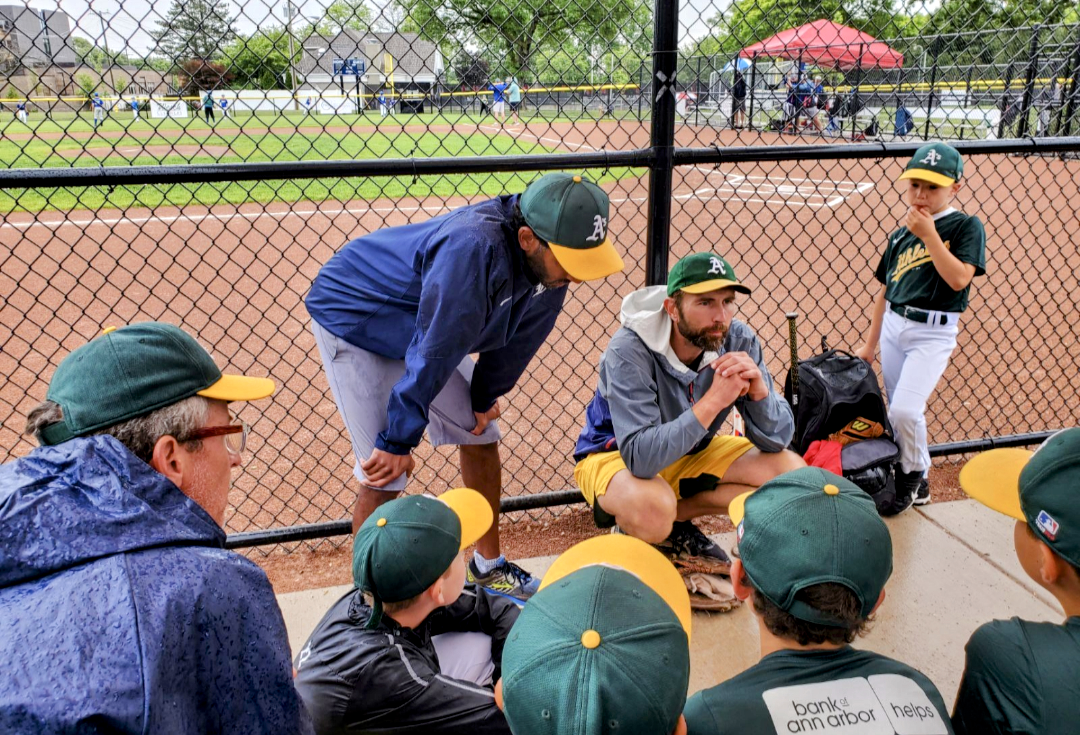
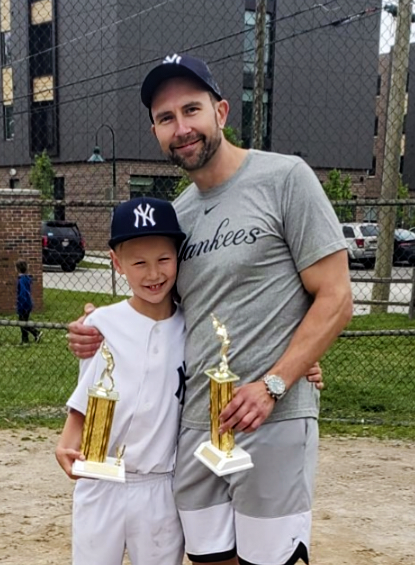
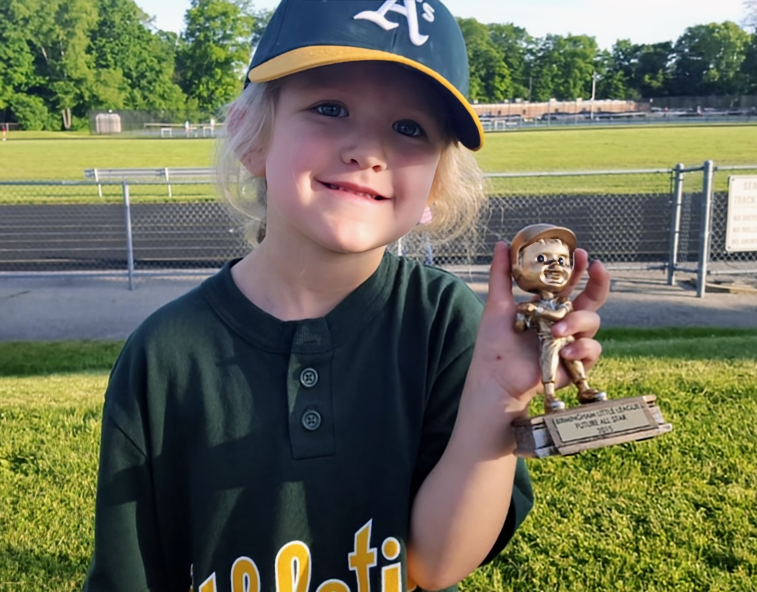
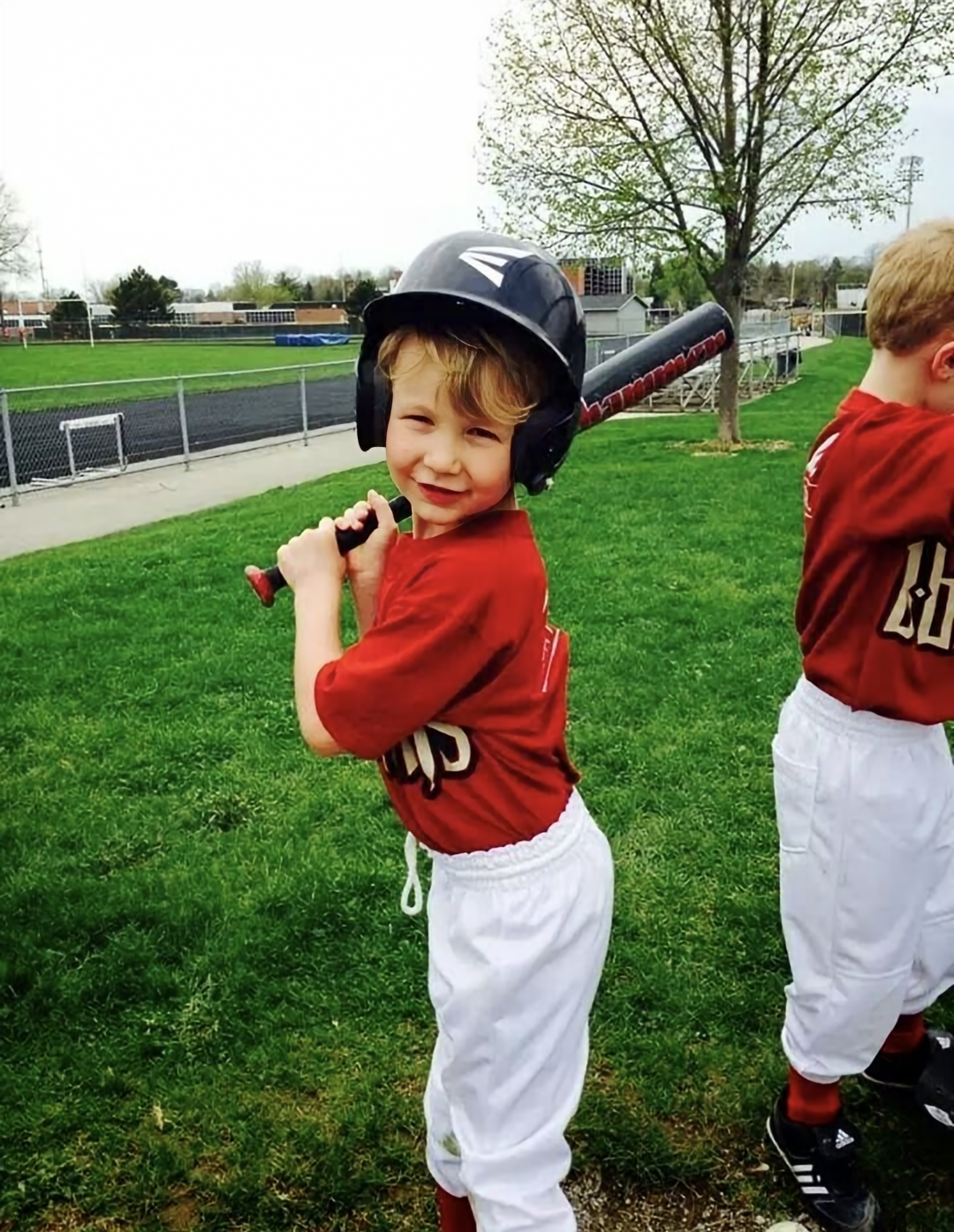
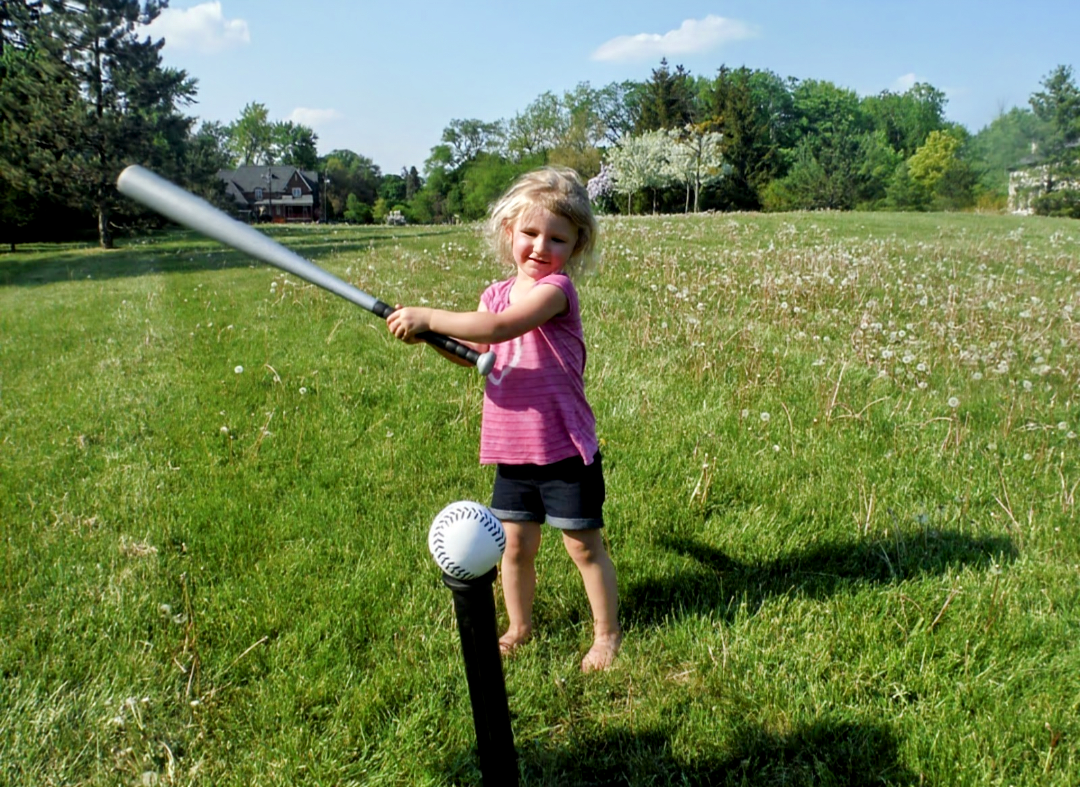
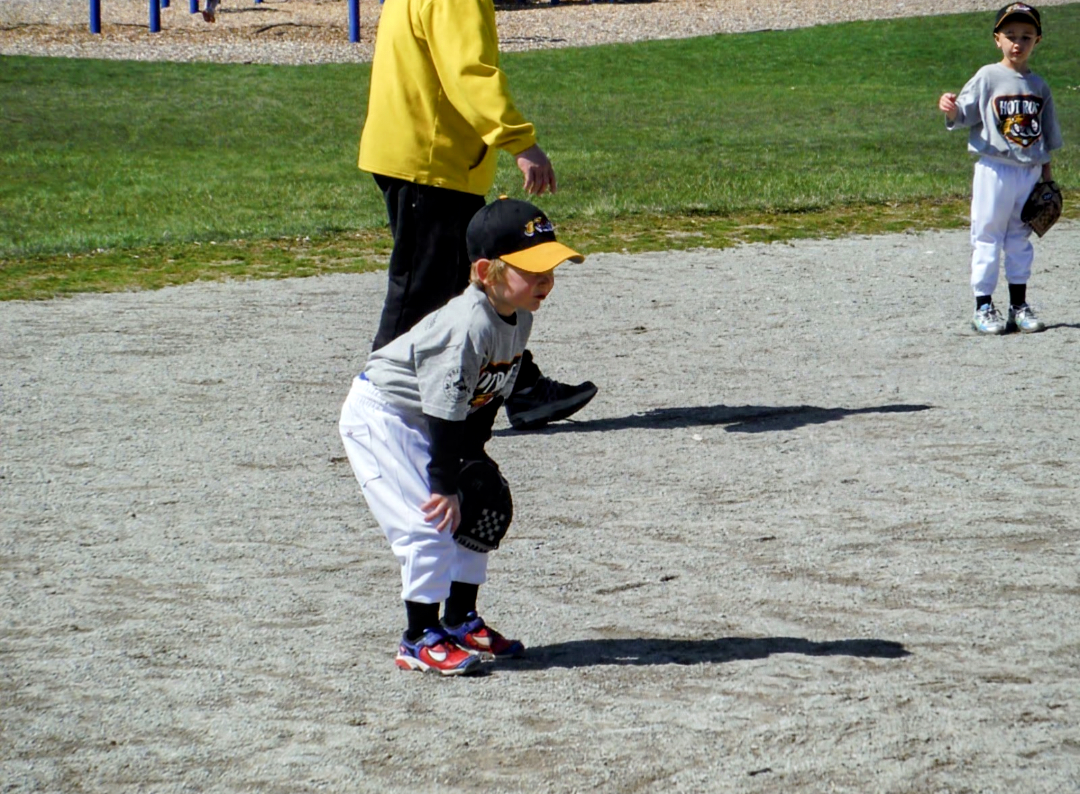
Comments
Sign in or become a Nu?Detroit member to join the conversation.
Just enter your email below to get a log in link.